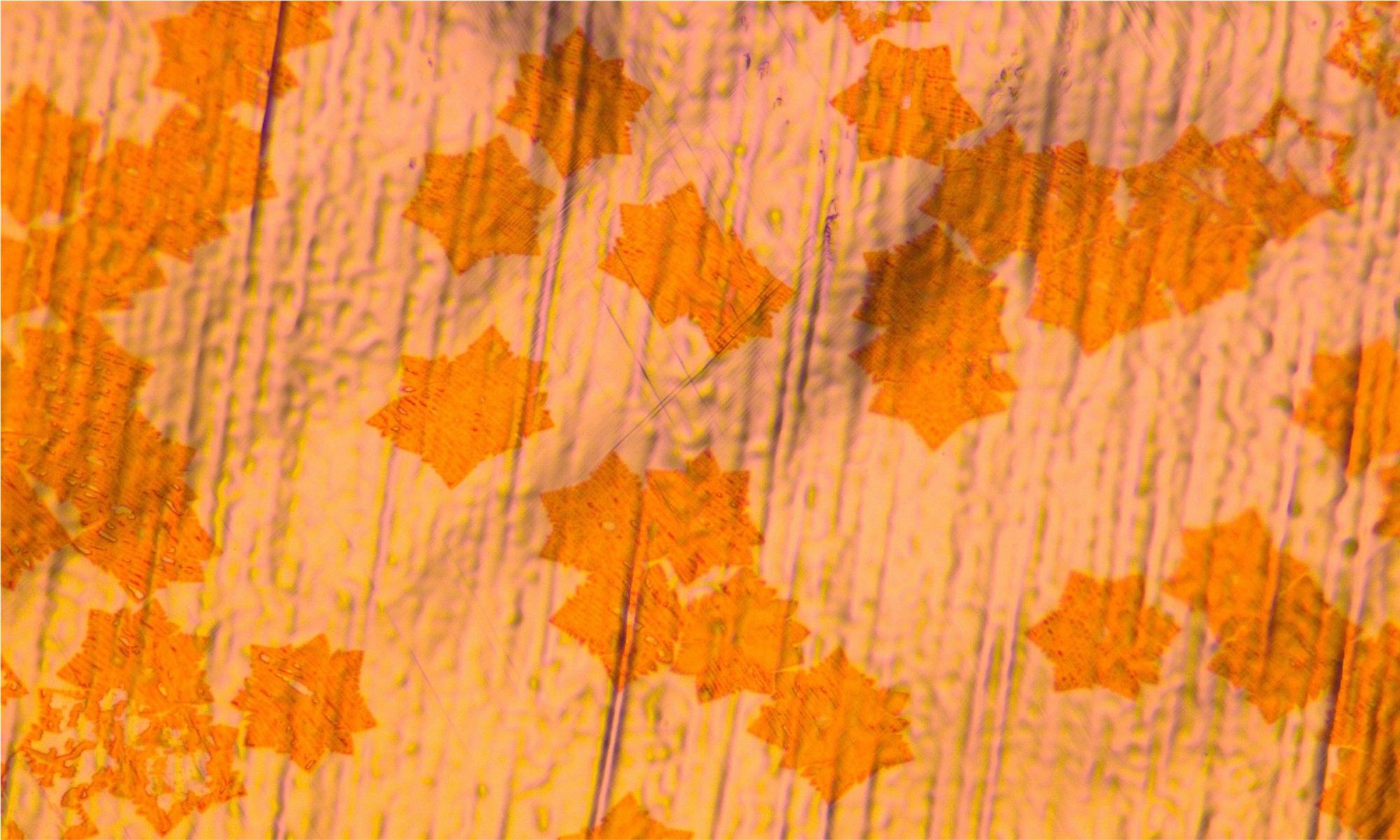This August, the Aachen Graphene & 2D Materials Center has gained new valuable expertise with the arrival of Dr. Lutz Waldecker as senior researcher in the Stampfer Group (2nd Institute of Physics A).
Continue reading “Dr. Lutz Waldecker starts at RWTH with a fellowship of the Alexander von Humboldt Foundation”Congratulations to Prof. Hiroo Suzuki
The Aachen Graphene & 2D Materials Center congratulates Hiroo Suzuki for his appointment as Assistant Professor at the Graduate School of Natural Science and Technology at Okayamy University in Japan.
Continue reading “Congratulations to Prof. Hiroo Suzuki”The excellent quality of boron-nitride grown at atmospheric pressure
With what could be a step forward towards large-scale high-performance graphene electronics, a team of German and French scientists has demonstrated the excellent quality of monoisotopic hexagonal boron nitride grown at atmospheric pressure by the group of James Edgar at Kansas State University.
Continue reading “The excellent quality of boron-nitride grown at atmospheric pressure”Graphene on Arte
Max Lemme is the protagonist of a short video produced by Arte for series Verknüpft (Linked). Using a simple language, the video explores the connection between a common pencil and a self-driving car. That connection is graphene – or better nanotechnology based on graphene, like the one developed by Lemme’s group at AMO and RWTH.
Continue reading “Graphene on Arte”Graphene on the radio
On February 20, 2020, the radio station Deutschlandfunk Kultur has released a feature piece on “Graphene: the flat all-rounder”. Produced by the journalists Jennifer Rieger und Frank Kaspar, the piece offers an accessible overview of the unique properties of graphene, and a well-balanced analysis of the gap between the stellar expectations grown around this material and its current applications.
Continue reading “Graphene on the radio”Two new FLAG-ERA projects in Aachen
The Aachen Graphene & 2D Materials Center has won two projects on basic research and innovation on graphene in the last FLAG-ERA Joint Transnational Call.
Continue reading “Two new FLAG-ERA projects in Aachen”Spin-orbit proximity phenomena and tunable spin-to-charge conversion in graphene – A talk by Prof. Sergio Valenzuela (ICREA, ICN2)
On Tuesday, January 21, the Aachen Graphene & 2D Materials Centers will host a talk by Prof. Sergio Valenzuela, from the Catalan Institution for Research and Advanced Studies (ICREA) and the Catalan Institute of Nanoscience and Nanotechnology (ICN2).
Continue reading “Spin-orbit proximity phenomena and tunable spin-to-charge conversion in graphene – A talk by Prof. Sergio Valenzuela (ICREA, ICN2)”Call for applications: RWTH Junior Principal Investigator Fellowships
The Aachen Graphene & 2D Materials Center is eager to support excellent candidates in their application for the Fellowship.
Continue reading “Call for applications: RWTH Junior Principal Investigator Fellowships”The Graphene Revolution: From Transistors to Synthetic Cells – A talk by Prof. Tomás Palacios (MIT)
On January 16, 2020, the Aachen Graphene & 2D Materials center will host a seminar by Prof. Tomás Palacios, with the title “The Graphene Revolution: From Transistors to Synthetic Cells”.
Continue reading “The Graphene Revolution: From Transistors to Synthetic Cells – A talk by Prof. Tomás Palacios (MIT)”What’s new on electrostatically defined quantum dots in bilayer graphene at ETH Zürich: a seminar by Dr. Annika Kurzmann
On Friday, November 29, the Aachen Graphene and 2D Materials Center will have another cutting-edge seminar on graphene research: Dr. Annika Kurzmann, a post-doc in Klaus Ensslin’s group at ETH Zürich, will present her latest results on electrostatically defined quantum dots in bilayer graphene.
Continue reading “What’s new on electrostatically defined quantum dots in bilayer graphene at ETH Zürich: a seminar by Dr. Annika Kurzmann”